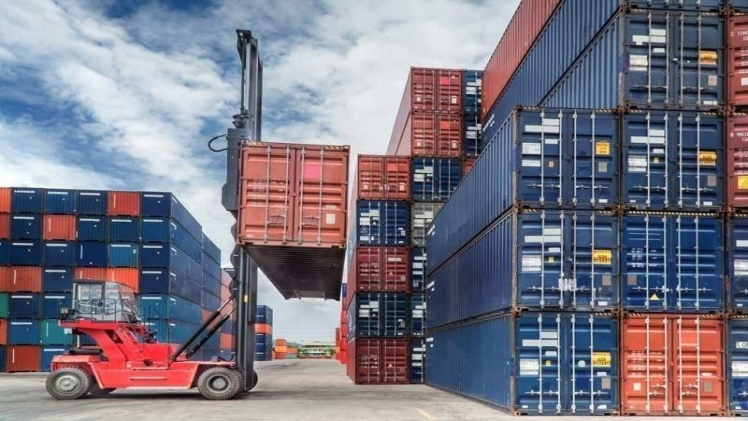The world is a web of commerce, with international trade acting as the engine that fuels economic prosperity. Southeast Asia, with its strategic location and growing economies, has become a hotspot for international trade activity. Thailand, in particular, has emerged as a key player in the region.
For businesses to tap into this thriving market, understanding customs law is paramount. Customs regulations dictate the import and export of goods, and navigating them successfully ensures a smooth and efficient trading experience. This guide will provide you with the essential knowledge of Thai customs law, from import procedures to export requirements, empowering you to confidently navigate the exciting world of Thai trade.
Importing To Thailand
Importing goods into Thailand involves a series of steps, each with its own set of regulations. Here’s a breakdown of the key points to remember:
-
Preparation
Before shipping your goods, ensure you have all the necessary documentation. This typically includes a commercial invoice detailing the goods, their value, and origin; a packing list specifying the contents, quantity, and weight of each item; and a bill of lading acting as a receipt for the burden of the goods to the carrier.
-
Product Classification
Accurately classifying your products using the Harmonized System (HS) code is essential. This internationally standardized system assigns a unique code to different types of goods, determining the applicable import duties and taxes. Inconsistencies in product classification can lead to delays and penalties.
-
Customs Clearance
Once your goods arrive in Thailand, they must pass through customs clearance. This process involves submitting all required documents to the Thai Customs Department electronically or on paper (depending on the value of the shipment). Customs officials may also request additional information or conduct inspections.
-
Duties and Taxes
Imported goods are broadly subject to import duties, calculated based on the HS code and the declared value of the goods. Thailand also levies value-added tax (VAT) on most imported goods. It’s important to note that duty rates can vary depending on the product genre and the existence of any Free Trade Agreements (FTAs) between Thailand and the exporting country (more on this later).
-
Import Restrictions and Prohibitions
Thailand maintains a list of restricted and prohibited goods that require special permits or are entirely banned from import. These can include items like certain agricultural products, endangered species materials, or weapons. Familiarize yourself with these restrictions to avoid impeding or confiscation of your goods.
Exporting From Thailand
The process of exporting goods from Thailand follows similar principles. Here’s what you need to know:
-
Documentation
Exporting typically requires a commercial invoice, a packing list, a certificate of origin (stating the product’s country of manufacture), and possibly additional documents depending on the specific goods.
-
Licenses and Permits
Certain goods may require export licenses or permits before leaving Thailand. These are often needed for products related to national security, cultural artifacts, or endangered species.
-
Export Duties and Charges
While not as common as import duties, some goods might be subject to export duties or other charges levied by the Thai government.
-
Export Restrictions and Prohibitions
Similar to imports, Thailand has a list of restricted and prohibited exports. Ensure your goods are not on this list and acquire necessary permits if applicable.
Additional Considerations
Navigating the complexities of Thai customs regulations can statusborn be demanding, especially for those unfamiliar with the system. Here are some additional points to consider:
- Licensed Customs Broker: Employ a licensed customs broker with expertise in Thai customs procedures is highly recommended. They can guide you through the process, ensure proper documentation, and expedite clearance for your goods.
- Free Trade Agreements (FTAs): Thailand has FTAs with numerous countries, which can significantly reduce or eliminate import duties on certain goods. Research any applicable FTAs that might benefit your imports or exports.
- Customs Valuation: Thai customs determine the value of imported goods for duty calculation based on international standards. Understanding customs valuation procedures can help avoid disputes with customs authorities.
- Staying Updated: Customs regulations are subject to change. Regularly check the official website of the Thai Customs Department (https://www.customs.go.th/) for updates and announcements.
Conclusion
Understanding and complying with Thai customs laws is crucial for any business involved in international trade with Thailand. Following proper procedures ensures a smooth flow of goods through customs, avoiding delays and potential penalties. For complex transactions, seeking professional advice from a customs broker or legal professional can be highly beneficial. With a clear understanding of these regulations, you can confidently navigate the Thai import and export landscape, contributing to successful international trade endeavors.
Take Control Of Your Thai Trade Journey
For a trusted partner in navigating Thai customs complexities, visit www.kap.co.th. KAP offers a team of experienced customs brokers dedicated to ensuring your Thai trade endeavors are successful.
Contact KAP today and unlock a world of seamless import and export experiences!

